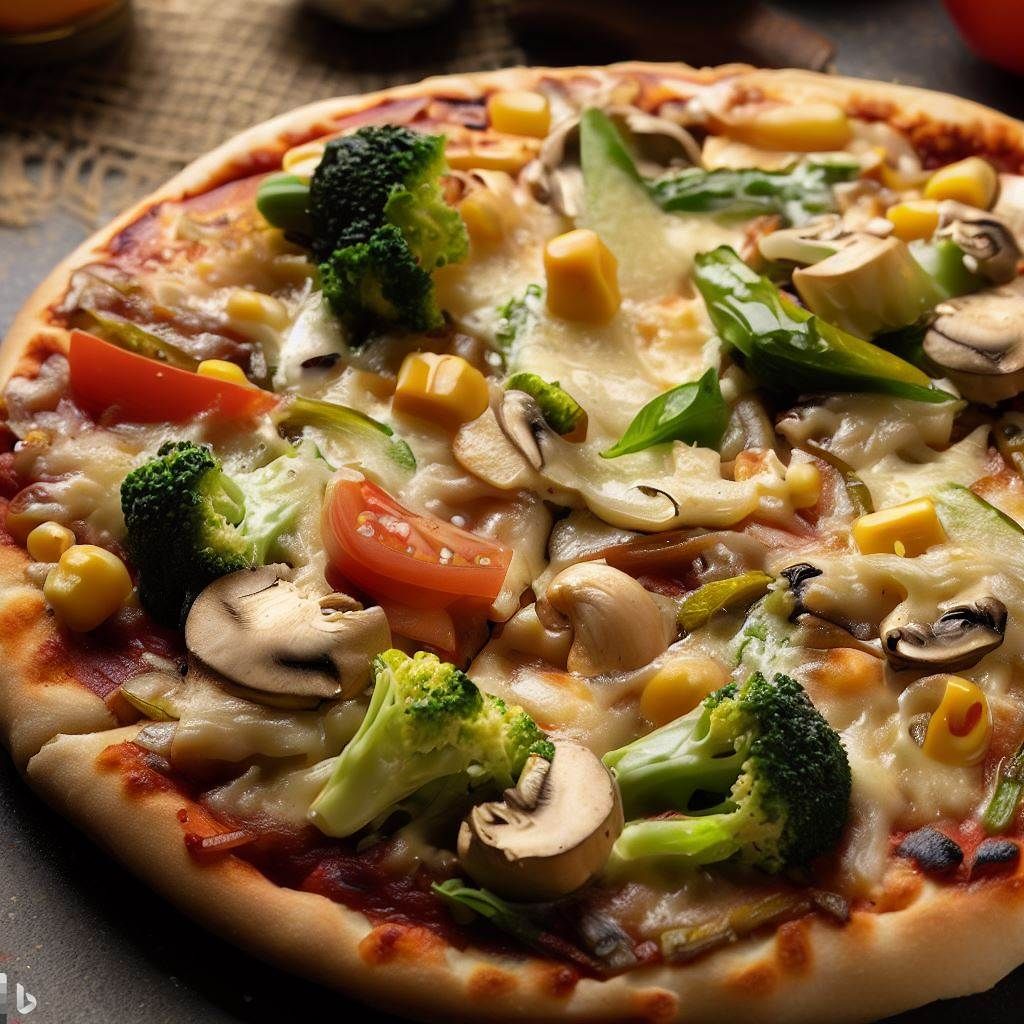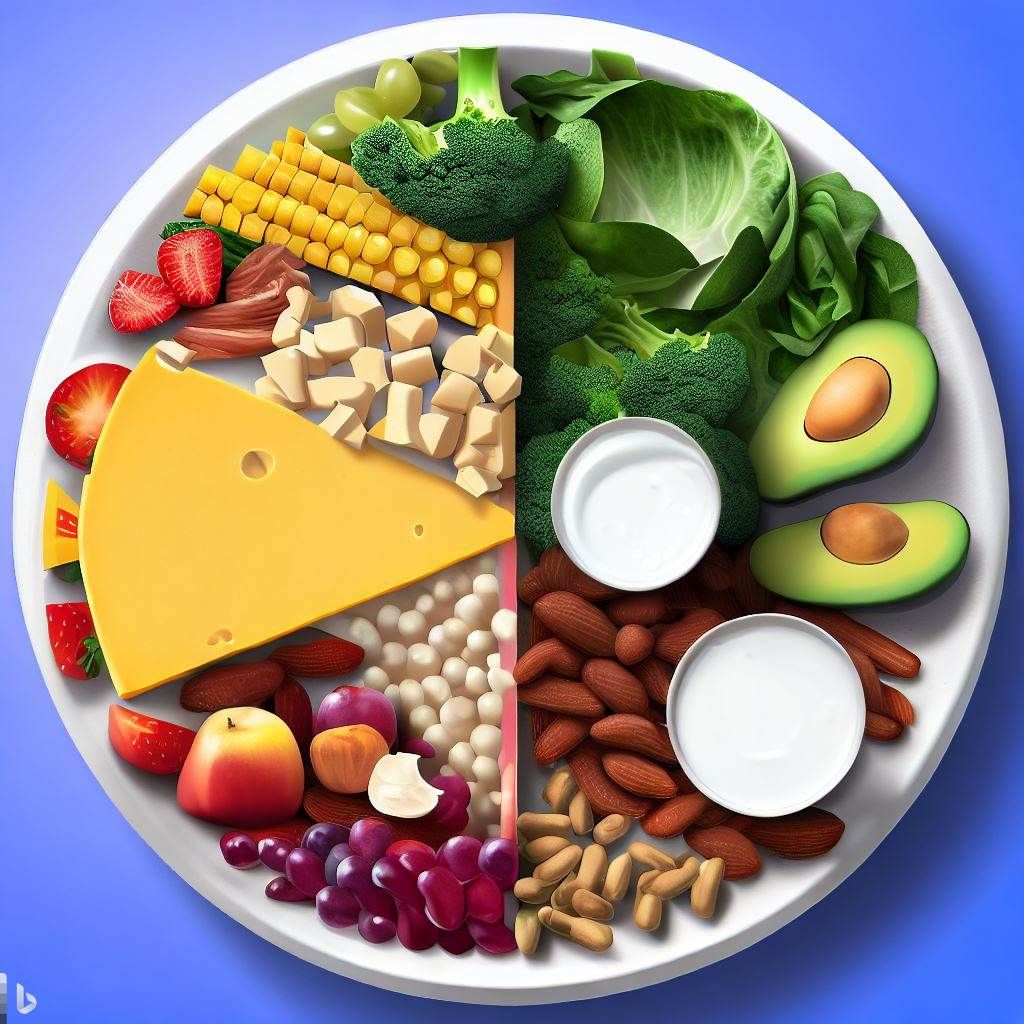Published Date January 24, 2003
Balanced Diet: The Secret to Sustainable Weight Loss
By Hetvi Shah
5 min read
Last update date: January 24, 2003
Instead of jumping on these crazy fad diets, get ‘on’ a balanced diet. It's like getting off the rollercoaster and onto a nice and cushiony ride in a Rolls Royce.
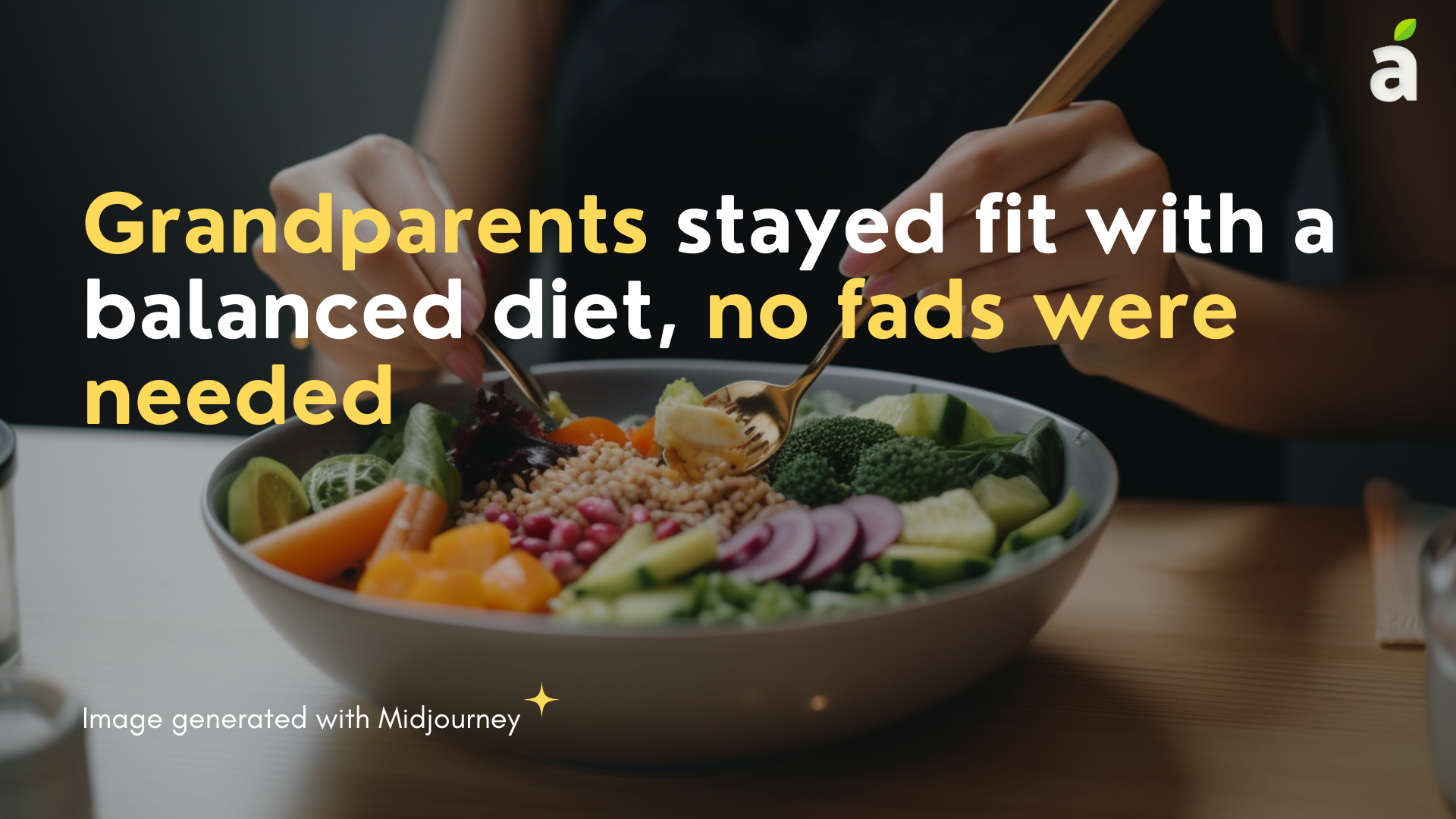
I’m a Nutritionist and in my short career, I’ve had quite a few people ask me if a carefree attitude towards food works (secretly they all want me to say yes). When I actually answer ‘yes’ to their questions, they would look bewildered also wondering if I was joking.
Funny, right? Because if you are not dieting, are you even human? You've got the juice to cleanse, the keto diet to help you lose weight, and the cabbage soup diet to manage to balance your calorie intake… and the list goes on. Google search trends reveal a spike in 'weight loss' searches before the festive seasons, indicating a focus on fast weight loss among people.[1]
People these days, are willing to try anything to lose a few pounds, without really understanding how these diets impact their bodies. None of our grandparents ever followed a fancy ‘get fit’ or ‘get slim’ fad instead, they were on a ‘poushtik’ diet (balanced diet; as we like to call it) and arguably, were fitter than us when they were our age. The prevalence of obesity globally has almost tripled since 1975.[2]
Picture this: You're on a strict keto diet, dreaming of all the delicious carbs and sweets you've given up. But wait, there's a wedding coming up, and you know what that means - free food! You work hard to get to your desired weight, but now it's time to celebrate, right?
Not really. When you start eating carbs and sweets again after a long break, your body experiences sugar overload. Suddenly, you're eating everything in sight, switching from "diet mode" to "feast mode." Excess sugar triggers insulin production, causing a sudden drop in energy levels and leading to hypoglycemia or sugar crash.
Fad diets like keto, intermittent fasting, paleo diet, one meal a day (OMAD) diet, gluten-free diet, and low-fat diet, are similar to a game of yo-yo. One minute you're up, the next minute you're down, and before you know it, you're spinning in circles. You gain weight, then you lose it, and then you regain... It's an unhealthy and never-ending cycle.
Keto diet studies suggest muscle loss even with resistance training. Muscle loss causes reduced energy expenditure and weight gain as we age. Eating processed meats increases the risk of kidney stones and gout. While Intermittent Fasting (IF) has benefits for weight loss and health.
It reduces body fat, inflammation and improves glucose metabolism. Alternate Day Fasting (ADF), a type of IF, has benefits for non-obese people. Side effects of fasting are mild and include dizziness, nausea, headache, and low blood sugar.[4][5]
But here's the thing, there's a better way to lose a few kilos and never gain them again. Instead of jumping on these crazy fad diets, get ‘on’ a balanced diet. It's like getting off the rollercoaster and onto a nice and cushiony ride in a Rolls Royce. I assure you it will take a while for you to get where you want but if you invest time and energy, you’ll notice the results.
And the best part? Unlike any other crash diet, it won't harm you in the long run. It'll only bring you benefits. You'll notice a difference in yourself physically and mentally if you stick to it. Plus, you won't have to deal with all those crazy cravings and hunger pangs that come with crash diets.
Now, I know you might be thinking, "Why should I listen to you? What makes a balanced diet so special?" Well, let me tell you. A balanced diet is all about eating a variety of foods in the right proportions.
The focus is not on eliminating entire food groups or starving yourself, which is what you do on most crash diets (like keto where you reduce your carb intake to only 10% of your daily energy needs) whereas normally carbohydrates provide most of the energy your body needs (about 45-55%). Instead, the key is to provide your body with all the nutrients it requires to operate at its optimal level.
So many of us are so fixated on what the weighing machine says that we’d do anything to see those numbers drop. It's like you're in a committed relationship with it and you never want to upset it. Sure, it's great to see those numbers drop, but let's not forget about the consequences of those crash diets. They starve your body of vital nutrients, causing muscle loss (not just fat loss) and throwing off your electrolyte balance. Plus, you'll be more tired than a sloth in a hammock because you're not getting enough calories to keep you going.
Crash diets carry health risks and short-term results. About 25% on low-calorie diets for weight loss develop gallstones. Regaining lost weight can trigger their formation. Rapid weight loss can cause a 25% loss in lean body mass, leading to frailty and weakened metabolism.[3]
A healthy balanced diet protects our body against chronic diseases whereas fad diets attract harm and leave us vulnerable to diseases and infections. Focusing on a well-balanced and sustainable diet rather than quick-fix solutions with harmful long-term effects is better.
If you want to learn more about a balanced diet, its benefits, and how to implement it, here’s all you need to know.
What is a Balanced Diet?
A balanced diet is the most basic yet unattractive style of eating. It ensures you get all the nutrients your body needs to stay fit and fight diseases. It ensures that your body always has the right amount of energy to carry out daily activities, prevents nutrient deficiencies, and boosts your immunity. Unlike crash diets which can make you feel weak and slow which makes you crave unhealthy foods making you more susceptible to chronic conditions like heart disease, diabetes and kidney ailments.
Well, let me tell you, a balanced diet is not just some crash diet you hop on and off. Think of it like this - a high-performance car requires the best quality fuel to run at its peak, and our body also needs a balanced diet with essential nutrients to function optimally. It is a whole lifestyle change.
So buckle up, my friend, and let's take a ride down the balanced diet highway. You're in for a tasty ride with lots of yummy food breaks.
Which Foods to Eat and Which to Avoid/Limit
When do I agree to my client’s requests to eat everything they want? Do you know what they say? "Life is too short to eat boring food!" And I couldn't agree more. But wait, before you go crazy with that slice, hear me out. I'm no party pooper, but I suggest you make a few tweaks to make your pizza healthier.
How about making it at home with whole wheat flour and piling on the veggies? Trust me, it'll be even more delicious and it’ll provide your body with all the right nutrients - fibre, antioxidants, and complex carbs.
I know you’re already tired of jumping on and off fad diets. This is your sign to ditch fad diets and join the ‘balanced diet bandwagon’. Start small and then move forward from there, it's not like turning on a light switch anyway.
First, try adding some more fruits and veggies to your meals. To maintain good health, it is consuming a significant amount of fibre, antioxidants, vitamins, and minerals is essential, all in fruits.
When you get used to eating a minimum of 3 portions of fruits and vegetables a day, swap out those refined grains for some whole grains. And don't be afraid of carbs! Just make sure they're complex carbs, like the ones found in whole wheat and brown rice.
Complex carbs are like the superheroes among carbs. They lower the GI of your meals which helps you keep your blood sugar levels in check and prevent diseases like diabetes from ever making an appearance.
Dairy is the most commonly known source of protein (repairs internal damage in the body) and calcium (good for bone health) for us Indians (especially vegetarians). Instead of relying on a cup of tea twice a day, try including some curd, cottage cheese, and other milk products in your diet.
Don’t forget protein - it is the building block of your body, after all. High-protein diets can not only promote muscle growth and haemoglobin levels (protein-rich foods can increase haemoglobin levels by providing essential amino acids for its production). So mix it up with different sources like eggs, beans, and lean meats.
Last but by no means least, fats. Not all fats are bad - some (unsaturated fats like MUFAs and PUFAs) are vital for the body's healthy functioning. These good fats help keep your cholesterol levels in check and your heart happy. So go ahead and enjoy some avocado (mainly containing MUFAs and PUFAs) and nuts (walnuts contain omega-3 fatty acids).
Importance of a Balanced Diet
A balanced diet is crucial for good health, providing essential nutrients, vitamins, and minerals. Eating different types of food in the right amounts keeps the nutrient balance. Not having enough nutrients can cause health problems like weak immunity, bone issues, and tiredness. Let's explore the benefits of eating healthy and feeling good!
Remember when you were down with the flu? Ugh, that was the worst! But guess what? Had you been on a balanced diet [it would have provided your body with nutrients like Vitamin C (orange, mango, lemon), Protein (egg, pulses and legumes), Iron (spinach, beetroot), and Vitamin D (fortified foods) - strengthen immunity], your body might have had the immunity to fight off pesky viruses. Think of it as arming your body's defences with all the best weapons![15]
Hair loss is one of the most common and talked about conditions in younger circles. Hair loss accompanied by fatigue can be a sign of an underactive thyroid or anaemia, but a balanced diet can help fix that. Plus, with all those nutrient-packed foods, iodine [cruciferous vegetables(prevents thyroid)] and iron [red meat(prevents anaemia)], you'll have shiny locks and boundless energy that will make your friends jealous.[16][17]
Speaking of friends, imagine showing up to a party and looking and feeling amazing! A balanced diet [that provides your body with healthy unsaturated fats like Omega-3 (walnuts), high potassium (banana), and low sodium] can reduce the risk of cardiovascular diseases and all the major diseases you can think of, so you'll be healthy and confident. And you'll have all the energy you need to dance the night away!
Reflect on when you used to work out and feel awesome afterwards. Let's get that feeling back! Eating next to nothing won't do the trick, but a balanced diet will give you all the nutrients you need to feel your best post-workout.
Ohh! And don't forget about sleep! A balanced diet [omega-3 (nuts & seeds, fish &seafood), tryptophan produces melatonin a sleep hormone (meat, fish, poultry, banana)] can help you get a good night's rest, so you'll wake up feeling refreshed and ready to take on the day. No more tossing and turning all night because of those spicy snacks you just had to have![18]
Portion Control and My Plate Concept
Now, let me tell you something super important - eating healthy is awesome, but overeating healthy food won't do you any favours either. It's like trying to fill up a gas tank that's already full, you know what I mean?
To ensure you're getting the most out of your meals, there's this cool thing called the "My Plate" concept, which helps you figure out how much of each food group you should eat. And then there's "portion control," which is all about listening to your body's cues and eating just the right amount.
So, what's the deal with My Plate? Half your plate should contain fruits and veggies, a quarter with whole grains, and another quarter with protein. And remember a serving of dairy![12]
When it comes to portion control, it's all about using smaller plates, paying attention to your hunger and fullness, avoiding distractions, and planning your meals ahead of time. It's a super easy way to maintain a healthy weight and reduce the risk of pesky chronic diseases.[13]
Takeaway
Maintaining a balanced diet and practising portion control are not always easy, especially if you're used to eating large portions or indulging in unhealthy foods. Remember, building healthy habits takes time, so be patient with yourself and don't expect to see results overnight. It's important to stay committed to your healthy eating habits, even when it's challenging.
Over time, these habits can lead to weight loss, increased energy levels, improved digestion, and a lower risk of chronic diseases such as heart disease and diabetes. With time and consistency, these healthy habits will become second nature, and you'll be on your way to a healthier, happier you!
References
- http://trends.google.com/
- https://www.who.int/news-room/fact-sheets/detail/obesity-and-overweight#:~:text=Worldwide%20obesity%20has%20nearly%20tripled,%2C%20and%2013%25%20were%20obese
- https://www.medindia.net/dietandnutrition/crash-diet-good-or-bad.htm#what-are-the-side-effects-of-a-crash-diet
- https://www.everydayhealth.com/ketogenic-diet/diet/keto-diet-dangers-you-need-know/
- https://www.ncbi.nlm.nih.gov/pmc/articles/PMC9998115/#:~:text=Duration%20of%20fasting%20varied%20from,and%2046.2%25%2C%20respectively
- https://www.maxhealthcare.in/blogs/what-is-a-balanced-diet#:~:text=A%20balanced%20diet%20contains%20an,deficiencies%2C%20and%20builds%20up%20immunity
- https://www.spinecorrectioncenter.com/9-benefits-of-eating-a-balanced-diet/
- https://fitelo.co/what-is-balanced-diet/
- https://www.nhs.uk/live-well/eat-well/how-to-eat-a-balanced-diet/eating-a-balanced-diet/
- https://i-base.info/guides/side/diet-a-balanced-diet-and-your-health#:~:text=There%20are%20seven%20essential%20factors,is%20shown%20in%20Table%2010
- https://www.healthline.com/health/balanced-diet#importance
- https://docmode.org/right-nutrition-and-portion-control-are-important-aspects-of-a-healthy-lifestyle/
- https://www.bda.uk.com/resource/food-facts-portion-sizes.html#:~:text=It%20is%20important%20to%20be,it%20needs%20to%20stay%20healthy
- https://www.activesgcircle.gov.sg/activehealth/read/nutrition/5-alarming-dangers-of-extreme-weight-loss-you-cant-afford-to-ignore#:~:text=Extreme%20weight%2Dloss%20deprives%20your,or%20predispose%20you%20to%20injury
- https://www.hsph.harvard.edu/nutritionsource/nutrition-and-immunity/#:~:text=Examples%20of%20nutrients%20that%20have,including%20the%20amino%20acid%20glutamine
- https://www.everlywell.com/blog/thyroid/foods-to-help-thyroid/#:~:text=Cruciferous%20vegetables%2C%20such%20as%20kale,potentially%20easing%20symptoms%20of%20hyperthyroidism.
- https://newsinhealth.nih.gov/2014/01/avoiding-anemia#:~:text=Common%20types%20of%20anemia%20can,poultry%2C%20fish%2C%20and%20shellfish.
- https://www.webmd.com/diet/foods-high-in-tryptophan
Keep reading
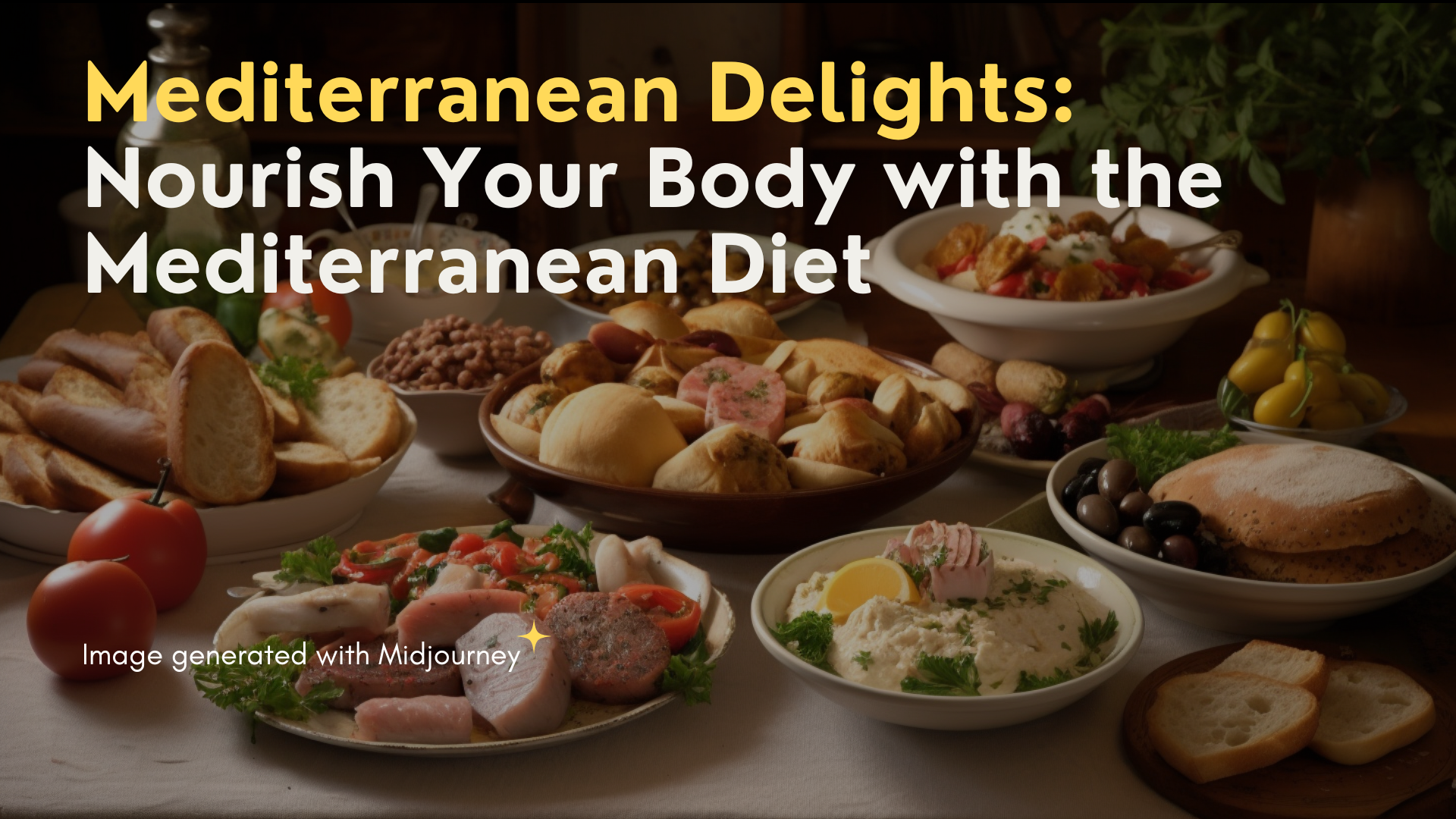
Mediterranean Diet: Journey to a Healthier You
By Naurin Ansari
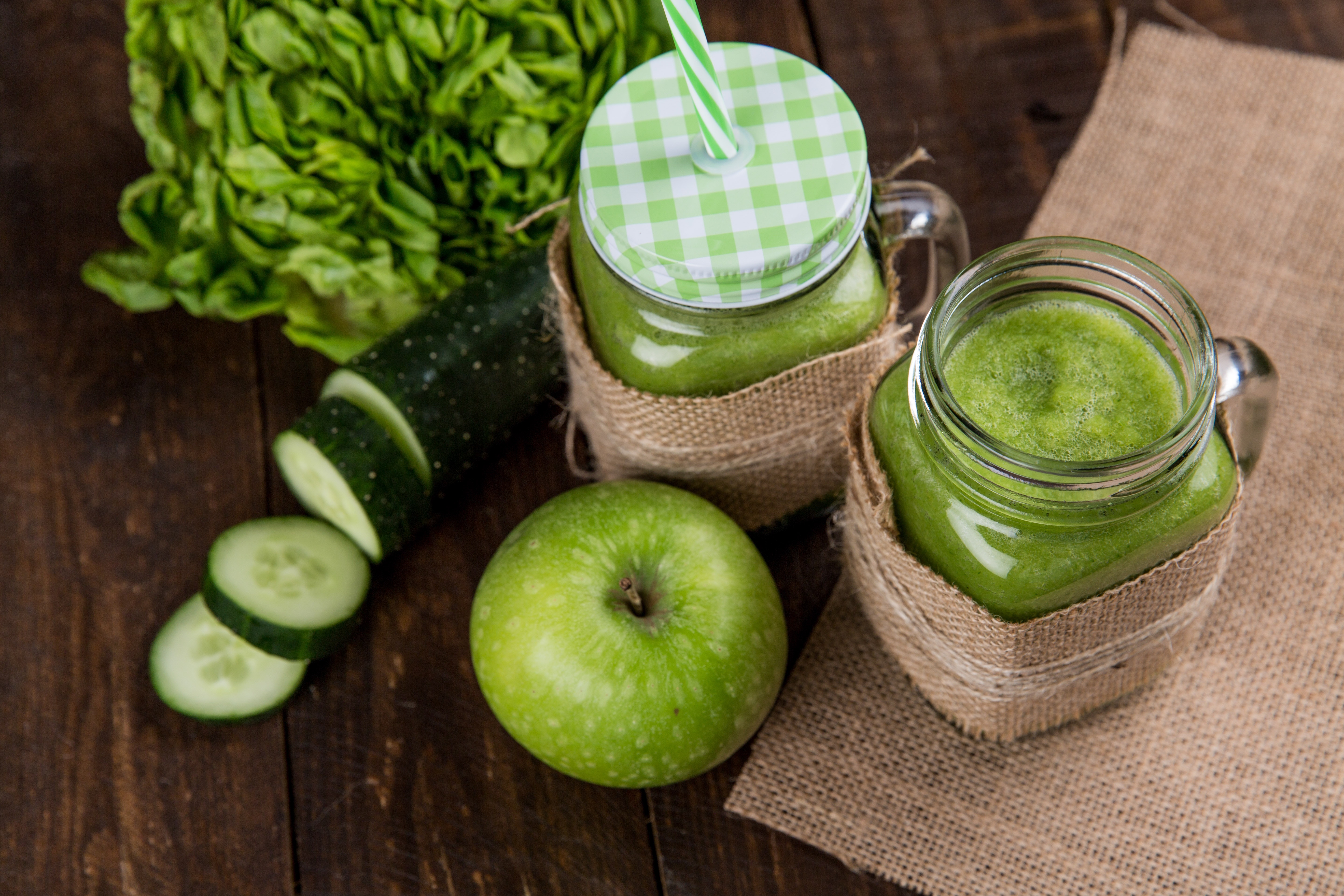
Does the detox diet actually work?
This diet is a short term intervention in your regular diet in order to cleanse your body and improve your health.
By Hetvi Shah
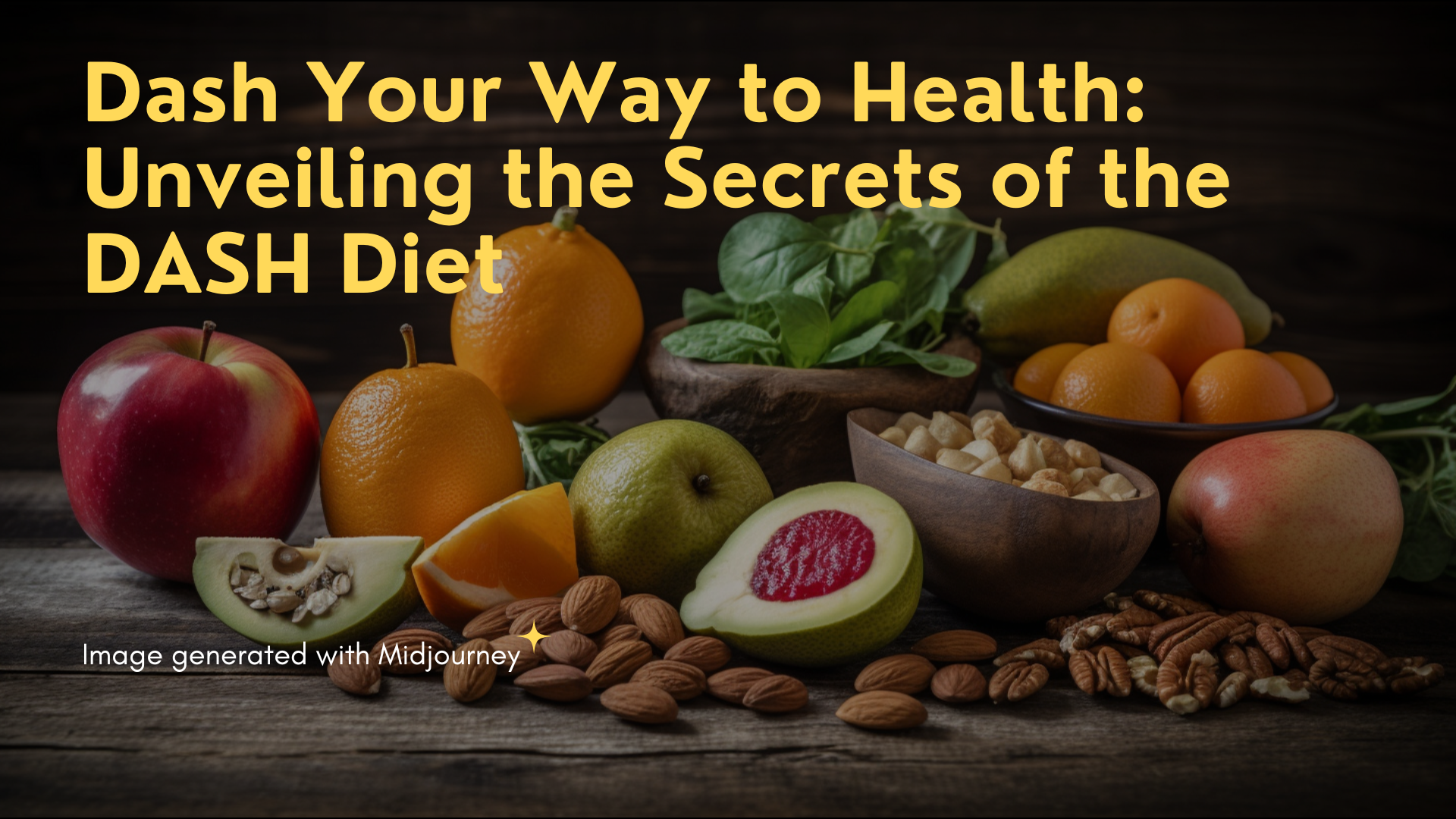
Navigating the DASH Diet for Optimal Health
By Naurin Ansari
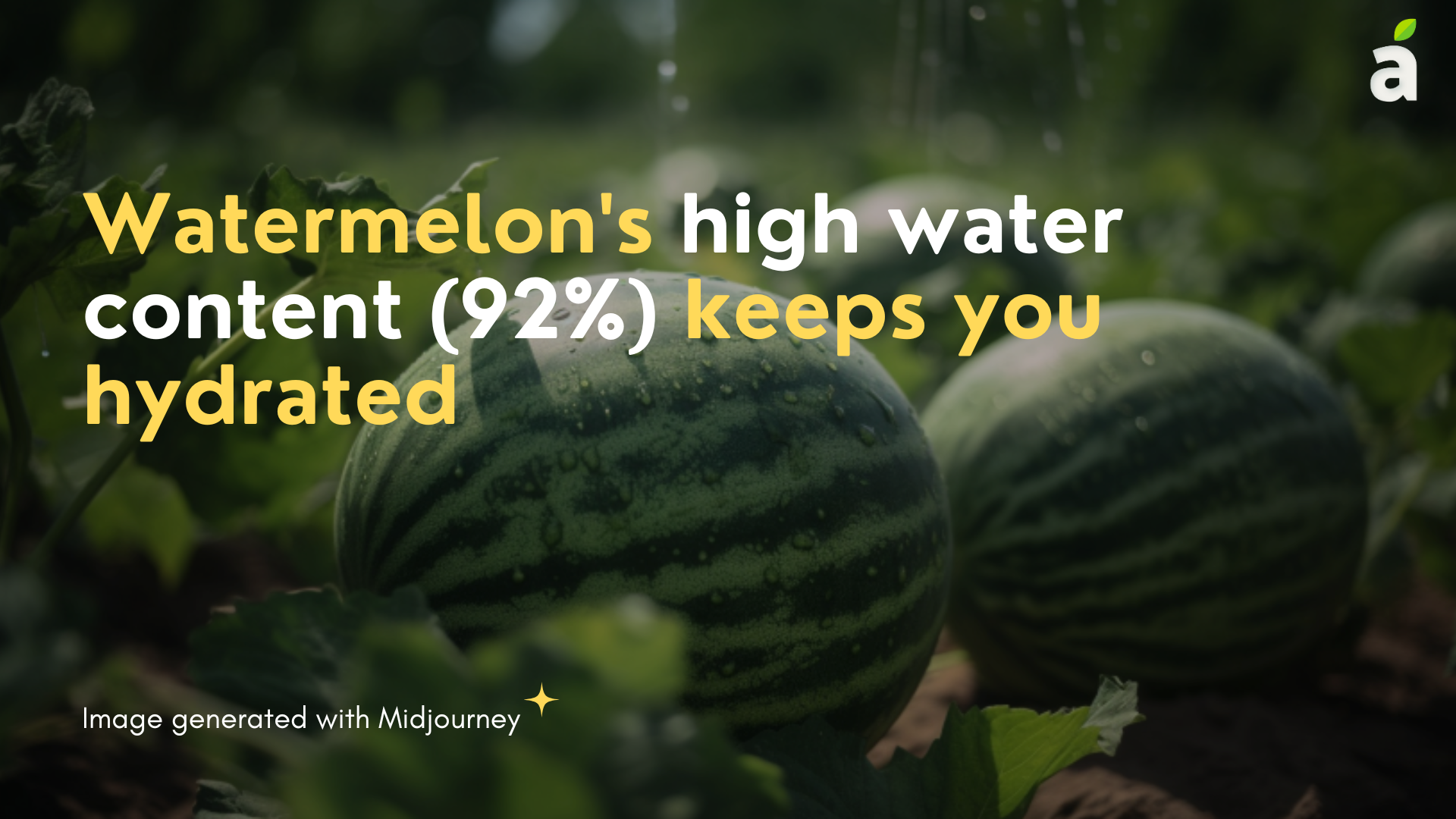
From Seed to Fruit: The Power of Watermelon
By Naurin Ansari
Choose Healthy With Us.
Know the real truth about your food. Stay informed and healthy, for free.

Download the App Now
Certified nutritionists trust our food recommendations. Safe to say, so can you :)




